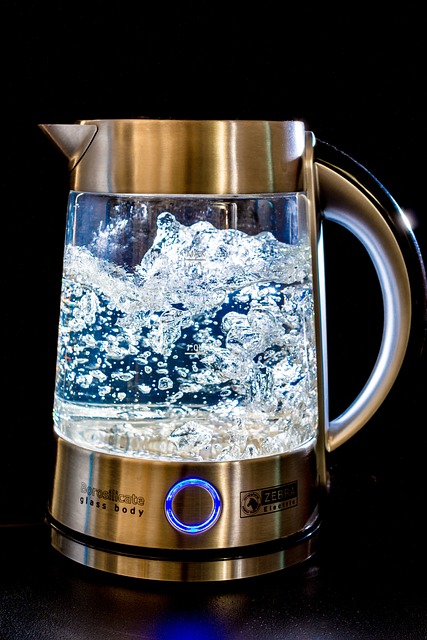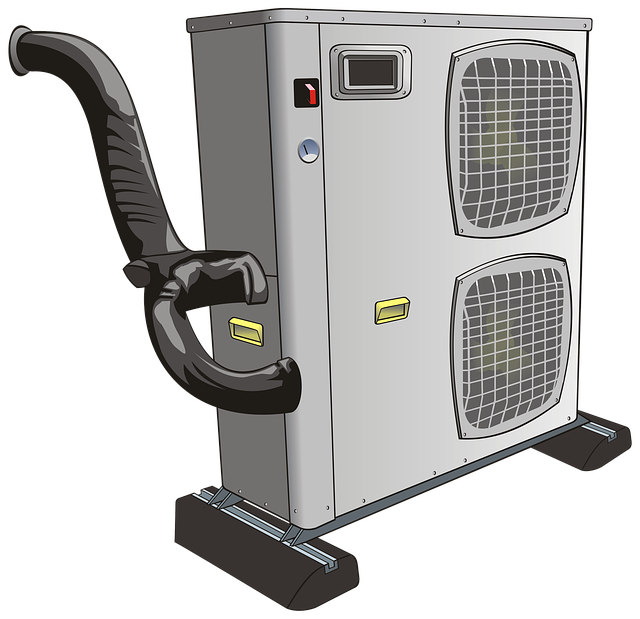Water heaters are essential for daily routines, but they require attention. Key signs of a failing water heater include temperature drops, shorter showers, and excessive noise. Age (over 10-15 years), frequent repairs, increased energy bills, and inconsistent hot water indicate potential issues. Regular maintenance, including inspection by professionals, is crucial to prevent breakdowns and reduce utility costs. Energy-efficient models with ENERGY STAR certification are recommended for long-term savings.
Is your water heater on its last legs? Recognizing the signs of a failing water heater is crucial to avoid unexpected disruptions in your daily routine. From odd smells and strange noises to inconsistent hot water flow, various indicators can signal that it’s time for an upgrade. This article explores common water heater issues and guides you through deciding when to replace your unit, offering steps for efficient installation or repair to ensure a smooth transition. Stay informed with these essential tips on identifying the signs you need a new water heater.
- Recognizing Common Water Heater Issues
- When to Replace Your Water Heater
- Steps for Efficient Water Heater Installation or Repair
Recognizing Common Water Heater Issues

Water heaters are an essential part of our daily routines, and recognizing common issues early on can save you from unexpected breakdowns. One of the clearest signs that your water heater might be reaching the end of its lifespan is a significant drop in water temperature. If you’ve noticed that your showers are shorter due to lukewarm water or that hot water only lasts for a brief moment, it could indicate a problem with heating elements or a malfunctioning thermostat.
Another common issue is excessive noise coming from your water heater. Rumbling, banging, or clicking sounds might suggest sediment buildup at the bottom of the tank, which can cause the heater to work overtime and even lead to leaks. If you’ve ruled out routine maintenance as the cause and these noises persist, it’s a good idea to consider whether it’s time for a new water heater. Signs You Need a New Water Heater include frequent repairs, increased energy bills, or the inability to maintain a consistent hot water supply, all of which could point to an outdated or failing unit.
When to Replace Your Water Heater

If your water heater is reaching the end of its lifespan, there are several clear signs you should look out for. One of the most telling indicators is age; most water heaters last around 10-15 years, so if yours is nearing or has exceeded this mark, replacement might be on the horizon. Another significant sign is frequent heating and cooling cycles, which can lead to increased energy bills and reduced efficiency. If you notice your heater taking longer than usual to heat the water, it could be a sign that its elements are failing or the tank is corroding.
Additionally, unusual noises coming from the heater, such as banging or rumbling sounds, often indicate that internal components are loose or damaged. Leaks around the base or top of the unit, or even small drips, suggest corrosion or wear and tear on vital parts. When water pressure drops significantly, or if you start to see inconsistent hot water flow, it’s a clear sign that your water heater is struggling and may need to be replaced soon.
Steps for Efficient Water Heater Installation or Repair

If you’re noticing signs you need a new water heater, the first step is to assess your current system and its age. Outdated heaters are often less efficient, prone to more frequent breakdowns, and can be costly to operate. A professional should inspect any potential issues, from leaks and strange noises to inefficiencies like prolonged heating times.
For efficient water heater installation or repair, consider energy-efficient models that bear the ENERGY STAR label. These use less energy, reducing your utility bills. Whether replacing an old unit or repairing minor issues, professionals can ensure proper installation, safety features, and optimal performance. Regular maintenance, such as flushing and cleaning, also plays a crucial role in prolonging heater life and maintaining efficiency.
If you’ve noticed persistent issues like inconsistent hot water, unusual noises, or rising energy bills, it might be time to consider signs you need a new water heater. Don’t let a malfunctioning water heater leave you in the cold—proactive repair or replacement can ensure a steady supply of hot water and prevent costly damage. With proper care and regular maintenance, you can extend the lifespan of your water heater and avoid unexpected breakdowns. Take control today by learning these key indicators and following the efficient water heater installation or repair steps outlined in this article.
